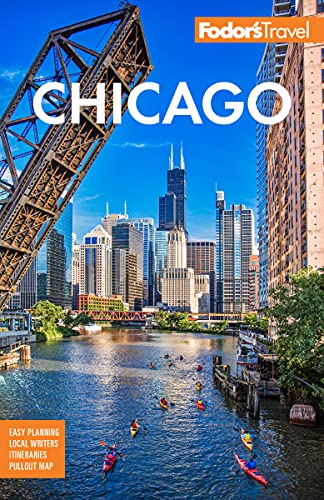A Brief History of Chicago
The Early Days
Before Chicago was officially "discovered" by the team of Father Jacques Marquette, a French missionary, and Louis Jolliet, a French-Canadian mapmaker and trader, in 1673, the area served as a center of trade and seasonal hunting grounds for several Native American tribes, including the Miami, Illinois, and Pottawattomie. Villages kept close trading ties with the French, though scuffles with the Fox tribe kept the French influence at bay until 1779. That year, black French trader Jean Baptiste Point du Sable built a five-room "mansion" by the mouth of the Chicago River on the shore of Lake Michigan.
The Great Fire
The city grew until 1871, when a fire in the barn of Catherine and Patrick O'Leary spread across the city, killing hundreds. (Contrary to the legend, it was probably not started by a cow kicking over a lantern.) A recent drought coupled with crowded wooden buildings and wood-brick streets allowed the blaze to take hold quickly, destroying 18,000 structures within 36 hours.
Gangsters to the Great Migration
World War I (aka the Great War) changed the face of Chicago. Postwar—and especially during Prohibition (1920–33)—the Torrio–Capone organization expanded its gambling and liquor distribution operations, consolidating its power during the violent "beer wars" from 1924 to 1930. Hundreds of casualties include the seven victims of the infamous 1929 St. Valentine's Day Massacre. In 1934 the FBI gunned down bank robber and "Public Enemy No. 1" John Dillinger outside the Biograph Theater on the North Side, now a theater venue and a Chicago landmark.
The Great War also led to the Great Migration, when African-Americans from the South moved to the northern cities between 1916 and 1970. World War I slowed immigration from Europe but increased jobs in Chicago's manufacturing industry. More than 500,000 African-Americans came to the city to find work, and by the mid-20th century African-Americans were a strong force in Chicago's political, economic, and cultural life.
The Notorious 1968 Democratic Convention
The Daley dynasty began when Richard J. Daley became mayor in 1955. He was reelected five times, and his son Richard M. Daley ran the city until opting out in 2011, when President Barack Obama's former chief of staff, Rahm Emanuel, won.
The first Mayor Daley redrew Chicago's landscape, overseeing the construction of O'Hare International Airport, the expressway system, the University of Illinois at Chicago, and a towering skyline. He also helped John F. Kennedy get elected.
Despite these advances, Mayor Richard J. Daley is perhaps best known for his crackdown on student protesters during the 1968 Democratic National Convention. Americans watched on their televisions as the Chicago police beat the city's youth with sticks and blinded them with tear gas. That incident, plus his "shoot-to-kill" order during the riots that followed the assassination of Dr. Martin Luther King Jr., and his use of public funds to build giant, disastrous public housing projects like Cabrini–Green, eventually led to the temporary dissolution of the Democratic machine in Chicago. After Daley's death, Chicago's first black—and beloved—mayor, Harold Washington, took office in 1983.
Chicago Today
The thriving commercial and financial "City of Broad Shoulders" is spiked with gorgeous architecture and set with cultural and recreational gems, including the Art Institute, Millennium Park, 250 theater companies, and 30 miles of shoreline. Approximately 2.8 million residents live within the city limits, and tens of thousands commute from the ever-sprawling suburbs to work downtown.
The last Mayor Daley gave downtown a makeover, with his focus on ecofriendly building initiatives that led to a green roof on City Hall and new bike paths throughout town. But parts of the South and West sides remain mired in poverty and suffer the brunt of the gun violence that has made international headlines.
There are always controversies (former governor Rod Blagojevich was convicted of federal corruption charges in 2011 and current Mayor Emanuel is no stranger to contention), but most Chicagoans are fiercely proud to call the city home.




